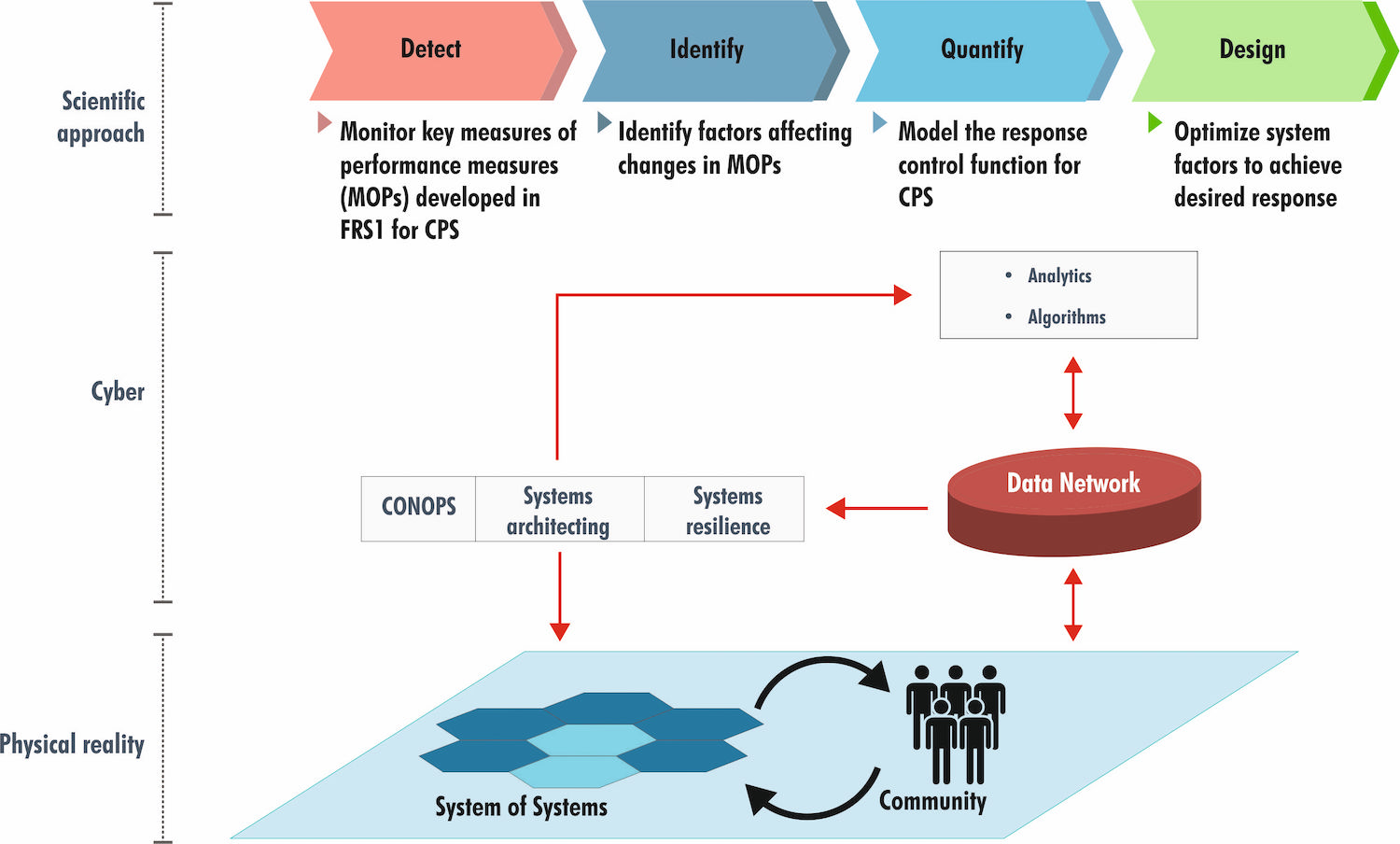Resilience-Driven Design of Cyber-Physical Systems

Developing a roadmap to guide resilience-driven design of cyber-physical systems through a system-of-systems approach
Due to the increasing complexity of cyber-physical systems (CPS) and the growing number of potential hazards and attacks, there is an urgent need for resilience-driven design of these systems. While design metrics for most performance indicators of CPS are well-defined and understood, there is currently no defined yardstick or roadmap for designing resilience into a system.
In system design, concept of operations (CONOPS) and related system architecture have a profound influence on a system’s performance, especially in times of disruption. For a CPS, a system-of-systems approach is necessary in understanding the system and to design resilience into the system.
The “Resilience-Driven Design of Cyber-Physical Systems” research module will develop high-level strategic CONOPS and related system architecture, focused on the design of two important aspects of system resilience: recovery and reconfigurability.

Expected outcomes
- A roadmap for resilience-driven design to guide resilience-driven design. The roadmap includes: the identification and detection of key performance measures of CPSs, development of methods to quantify recovery and reconfigurability, and the development of optimisation algorithms to design for resilient recovery and re-configurability.
- Application of the roadmap and system tools to the security systems in Changi airport. The results will be validated at the level of CPSs and the communities served by the systems. The comprehensive framework and tools will enable stakeholders to better understand and manage the design of resilient CPS at the development, implementation, and verification stages.
- Conceptual framework for community resilience based on theoretically-grounded analysis of social attitudes and behaviours. This is meant to address the increasing interest and need to understand how users and the community can influence system resilience.
- Analytical tools and methods for data analysis to support this framework, so as to understand, model, and uncover factors influencing the dynamics of societal resilience. It will also provide a platform to share best practices across different domains of application.
